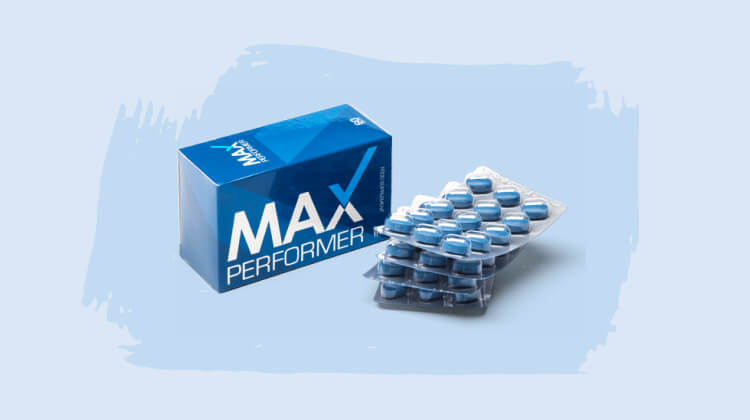So, you’ve been in a situation (perhaps multiple times) where one or two-minute premature ejaculation has ruined your night and your partner’s sexual satisfaction. But hey, it happens to the best of us.
So now you’re looking for ways to last longer and have better sex, you might have heard that abstinence – yep, that’s right, abstaining from sex altogether – can be a solution. But can it really cure a sexual dysfunction like premature ejaculation? That’s what we’re here to find out.
So if you’re tired of feeling like you’re racing against the clock every time you get down to business, take a deep breath, and let’s explore the topic of “can abstinence cure premature ejaculation?”
What is abstinence?
Abstinence is the practice of refraining from certain behaviors or activities, particularly those that are considered harmful or risky. In the context of sexual behavior, abstinence refers to not engaging in sexual activity, including penetrative intercourse and other sexual activities.
While abstinence is often used as an effective way to prevent unintended pregnancies and STIs we want to take a more in-depth look at its impact on men experiencing premature ejaculation.
The role of frequency of sexual activity in premature ejaculation
A study carried out in 2016, looked at whether the time between ejaculations (abstinence time) affects nerve tests used to diagnose premature ejaculation. The study included 50 people with PE and 28 people without PE.
The nerve tests were done before and after ejaculation. The results showed that abstinence time did not affect the nerve electrophysiological test in either group of people. The results also showed that there were no significant differences in the test results before and after ejaculation in either group. The researchers concluded that abstinence time does not affect the nerve tests used to diagnose PE and that these tests are a reliable premature ejaculation diagnostic tool.
Sorry lads! abstinence isn’t going to cure your PE.
The potential benefits of abstinence for treating premature ejaculation
Although there is no conclusive evidence that abstinence can help treat premature ejaculation, there are some benefits it has for some men that could potentially have a positive impact on how long they last. Here are a few benefits abstinence from sex can have:
Focusing on other aspects of sexual health and well-being
Abstinence could make it possible for someone to concentrate on other areas of their sexual health and well-being, such as connection, intimacy, and communication with their partner.
Limitations and drawbacks of using abstinence
Although some men may find abstinence from sex beneficial to their sexual and mental health, as a sole treatment for premature ejaculation, there are a few drawbacks:
It may have negative impacts on relationships and well-being
Abstinence may negatively impact relationships and well-being, especially if it is not a desired or mutually agreed upon choice. It may lead to feelings of frustration, resentment, or isolation in individuals or their sexual partners.
It may not address the underlying causes of premature ejaculation
It may not address the underlying causes of premature ejaculation, such as physical or mental health conditions, relationship issues, or other factors. It is important for individuals to explore all treatment options and find the right health provider for PE that suits them, to determine the most appropriate and effective course of treatment for their specific needs and circumstances.
It may not be a long-term solution:
Abstinence may not be a long-term solution for premature ejaculation, as individuals will eventually need to resume sexual activity at some point. It is important for individuals to consider whether abstinence is a temporary or permanent treatment option and to consider how they will address premature ejaculation once they resume sexual activity.
Alternative treatment options for premature ejaculation
If you’re looking for a more sustainable way to manage your PE, these alternative treatment options may be worth a look:
Medications
Selective serotonin reuptake inhibitors (SSRIs) and topical anesthetics are two drugs that may be helpful in treating premature ejaculation. SSRIs, which are frequently prescribed to treat depression and anxiety, may assist to postponing ejaculation by preventing serotonin from being reabsorbed by nervecells in the brain. Prior to sexual engagement, topical anesthetics like lidocaine or prilocaine can be given to the penis to lessen sensitivity and postpone ejaculation.
Natural supplements
Male enhancement supplements offer a natural alternative for men who are seeking to address premature ejaculation. While prescription medications may provide temporary relief, they can also come with adverse side effects and may not address the root causes of PE. Male enhancement supplements like Performer 8 contain a blend of natural ingredients, including macuna pruriens, ashwagandha, and L-arginine, that have been specifically selected to support sexual health and performance.
These ingredients are believed to increase the levels of neurotransmitters in the brain that regulate sexual function, reduce anxiety and stress, and improve blood flow, which can all contribute to lasting longer in bed. By using a natural male enhancement supplement like Performer 8, men may be able to address the root causes of their PE in a safe and effective manner, without the risk of adverse side effects associated with prescription medications.
Check out our take on Performer 8 in our detailed review of the male enhancement supplement!
Therapy
Therapy can address the underlying reasons for the disorder, such as relationship problems, anxiety, or stress, making it a useful option for premature ejaculation. For those who have PE, cognitive-behavioral therapy (CBT) or even hypnotherapy for PE may be especially beneficial since it enables patients to recognize and alter harmful thought patterns and behaviors that may be contributing to their problem.


Techniques and strategies for lasting longer in bed
Some techniques and strategies that may be helpful for lasting longer in bed include:
- The “stop-start” method – This technique involves stopping sexual activity when the individual senses that they are about to ejaculate and waiting for the feeling to subside before resuming sexual activity. This can be repeated as needed.
- The “squeeze” method– This technique involves squeezing the tip of the penis when the individual senses that they are about to ejaculate. This can help to delay ejaculation.
- Distraction – Focusing on something non-sexual, such as a mental task or physical sensation, can help to distract from sexual arousal and delay ejaculation.
Check out our article on using mind control techniques to help PE
Summary
In conclusion, abstinence, or refraining from sexual activity, may offer some potential benefits for individuals who are seeking to treat premature ejaculation. Although the study carried out didn’t prove that abstinence can help you last longer in bed, some of the potential benefits like reduced tension and anxiety from the sexual break could be beneficial to some men.
Abstinence may also allow individuals to focus on other aspects of their sexual health and well-being, such as communication, intimacy, and connection with their partner.
However, it is important to carefully consider the limitations and drawbacks of using abstinence as a sole treatment for premature ejaculation. Abstinence may not be a viable or desirable option for everyone, and it may not be an appropriate or effective treatment for all individuals with PE.
Additionally, abstinence may negatively impact relationships and well-being, especially if it is not a desired or mutually agreed upon choice. Abstinence may also not address the underlying causes of premature ejaculation.
Ultimately, it is important to find a solution that works for you and your partner, whether it involves abstinence or other treatment options.












